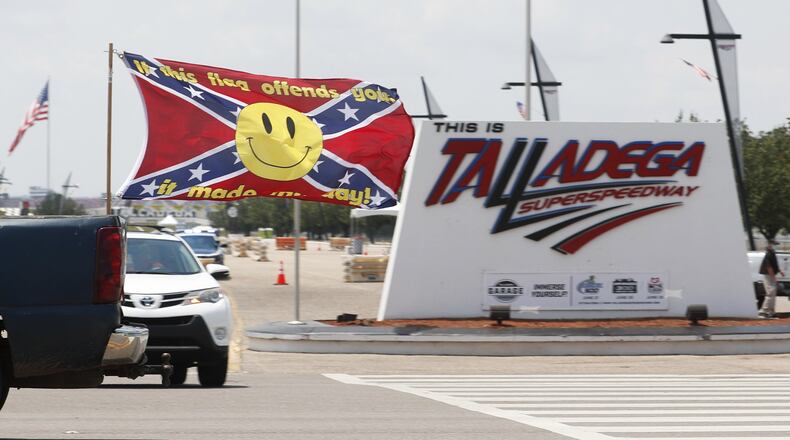Turns out, Roy Barnes was right.
Barnes, the last great Georgia Governor of the 20th century, lobbied to change the Georgia flag in 2001.
Barnes wanted to replace the Georgia flag which contained the Southern Battle Flag, the Stars and Bars.
A gaggle of Georgians insisted that the Southern Battle Flag was not based on racism, but merely on a love for the Old South.
They were ignoring, of course, that the Confederate symbol had only been added to the Georgia flag in 1956 as a protest against Brown vs. Board of Education- the case that outlawed segregation in public schools.
VIDEO: More on this issue
The old Stars and Bars, according to some Georgians, was merely displaying their affection for the “Old South.” They must’ve been repressing the fact that the “Old South” was an agrarian society that was founded on the backs of African Americans.
Barnes, however, knew better.
In late 2000 he approached business and civil rights leaders to get support for his plan to change the flag. The change would proclaim to the world at large that Georgia actively wanted to rescind its heritage of racism.
Barnes won the initial battle. Even conservative lawmakers, standing in the well of the state house, admitted that Georgia’s history of racism must be abandoned.
A new flag, designed by architect Cecil Alexander, reduced the size of the Confederate symbol and positioned it as just one of many early flags.
Barnes’ noble cause gave rise to a furious opposition. For months the Governor was accompanied everywhere he went by “flaggers”, protesters who waved the original Confederate flag and who shouted curses whenever Barnes was visible.
The narrative might have ended there except that Barnes faced stern opposition in the 2004 election. His opponent, Sonny Purdue, used the issue of the flag to inflame Georgians and to convince native southerners that Barnes had somehow abandoned them.
The fight over the flag was responsible, in part, for Barnes’ defeat in that election.
Barnes won the battle, but lost the war.
Under the new governor, a flag which contained the Confederate Stars and Bars was established as the new Georgia symbol.
I thought of Barnes’ fight to replace the Georgia flag earlier this month as it was announced that NASCAR itself would ban the Confederate flag.
NASCAR? Really?
The quintessential sport for white southerners was actually banning the symbol of racism, the Confederate flag?
My, my.
How times have changed.
At last, in 2020, the South was ready to eschew their heritage of hate. We were ready to rid ourselves of a noxious symbol that glorified systemic racism.
After his loss, Gov. Barnes said to me “Racism is still the third rail of politics.”
Barnes’ defeat was the end of his political career. His critics claimed that the Confederate flag would live on forever.
This month’s news proves them wrong. Things in the South are ready to change.
It turns out, Barnes was right after all.
Rabbi Steven Lebow is the Senior Rabbi of Temple Kol Emeth in Marietta.
About the Author
Keep Reading
The Latest
Featured




